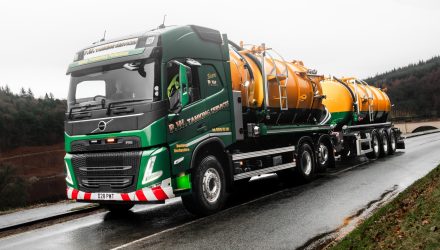In today’s competitive business environment, logistics and supply chain operations play a crucial strategic role – driving performance, efficiency, and customer satisfaction. That’s why one of the most critical decisions facing many fleet and transport managers today is choosing whether to insource or outsource their logistics operations.
On the surface, outsourcing can seem like an obvious choice. The potential for cost savings, scalability, and access to cutting-edge technologies and expertise is compelling. Take, for example, a national retail chain currently managing its own fleet and spending £1.5 million annually on logistics. An outsourcing quote comes in at £1.1 million. A £400,000 saving looks attractive – especially in the face of rising fuel prices, driver shortages, and increased environmental compliance costs.
However, when we dig deeper, the decision is rarely that straightforward. While outsourcing can unlock efficiencies, it also means relinquishing a level of control and accepting the risks that come along with it.
Another common consequence of outsourcing is a loss of internal capability and skills. When in-house teams no longer manage operations day-to-day, valuable operational knowledge and problem-solving expertise can be lost. Even when outsourcing, it’s vital a business is able to provide a counter part for their logistics providers at all levels of the organisation. For example, businesses that outsource specialist logistics functions, such as temperature-controlled deliveries, can find themselves on the back foot if service issues occur or at a disadvantage during contract negotiations due to the limited amount of competition in the market. Without in-house knowledge to assess Key Performance Indicators (KPIs) or suggest viable operational improvements, ultimately, businesses are only as effective as their contractors and may struggle to hold providers to account or implement quick fixes – particularly during peak trading periods. Losing logistics expertise can also add to macro issues later down the line, which can be particularly challenging given due to significant skills shortages, and a rapidly ageing workforce.
Insourcing, by contrast, can provide greater control and agility, enabling businesses to respond faster to issues, manage vehicle schedules more effectively, and build stronger customer relationships. However, it can also bring higher costs and greater operational responsibility. For example, imagine an e-commerce company has suitable scale to bring final-mile deliveries back in-house to improve service. While the level of operational control improves, the business is now forced to handle driver recruitment, vehicle upkeep, and route planning – all of which require time and money in turn.
A phased approach, which involves identifying which functions to insource, where external support is still valuable, and the best ways to build internal capability through targeted investment and training, can be more effective in some instances.
So, which route is right? The answer lies in taking a strategic, long-term view which addresses each business’ unique circumstances.
Cost is undoubtedly a key consideration, but up-front, top-level fees should never be the sole driver in decision-making. Businesses need to assess their broader goals, risk tolerance, and future growth plans – and weigh the risks that further obstacles or investment later down the line could pose.
It’s also worth noting that outsourcing doesn’t have to be ‘all or nothing’. Hybrid models, where third-party providers are used for only part of the logistics journey, are gaining traction, particularly in fleet management. Ultimately, the right logistics model is one that aligns with your long-term goals and provides the agility and resilience needed in a fast-evolving industry. Making that decision requires more than a simple cost comparison; it demands a thorough evaluation of where your business is today, where it’s going, and what logistics capability you need to succeed.
Whether you’re managing a national distribution network or operating a local fleet, the logistics decisions you make today will shape your business’s performance tomorrow. Take the time to explore your options, seek expert advice, and make the choice that delivers long-term success – not just short-term savings.
Author: Chris Clowes is executive director at global supply chain and logistics consultancy, SCALA.






